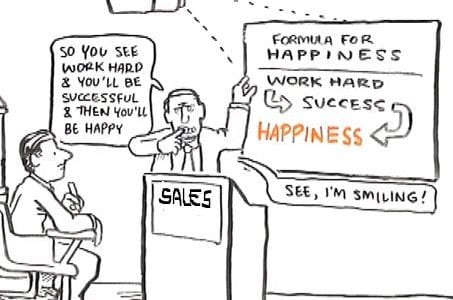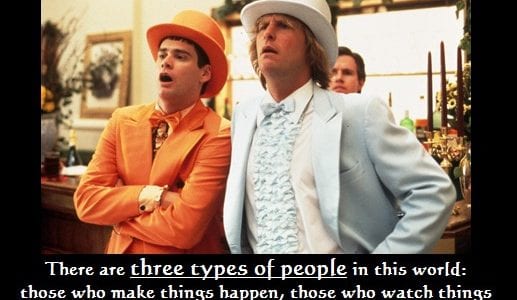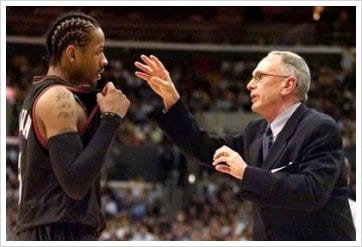by Jeff Eldersveld – August 2013
What does “best” mean?
The word “best” is interesting. While clearly defined in sports with crowned champions, MVPs, medals and trophies, the business side of sports is a little harder to understand.
Who is the champion of website marketing? What was the best in-game promotion?
Sure, there are awards for these types of things, but they are voted on by members within the industry – based more on gut and feel rather than stats and numbers.
If I ask you who’s the best hitter in baseball, you should reply with the league leader in batting average (don’t say Yasiel Puig!). If I ask you to name the best promotion in Minor League Baseball, you could reply with a variety of answers from Brittany Spears’ Child Safety Night with the Newark Bears to Free Gas Night with the Fort Myers Miracle. Different promotions are the “best” in their own unique way.
Best in class
A characteristic of the best salespeople and managers I’ve known is that they have a clear vision to be the “best” wherever they are. If people in this business are satisfied with middle of the pack or bringing up the rear, odds are it won’t be long before they’re realizing their vision of work somewhere else. Here are some tips that have helped me stay focused on the right path.
Define what value means to your organization–>especially your boss.
 Not everyone has the same idea. You should constantly present data, statistics, or examples that prove your worth to the organization. For those already employed, this is a great way to solidify your position within the organization. For those seeking employment, this is a great way to get a foot in the door. Dan Migala, Founding Partner of Property Consulting Group, could not agree more:
Not everyone has the same idea. You should constantly present data, statistics, or examples that prove your worth to the organization. For those already employed, this is a great way to solidify your position within the organization. For those seeking employment, this is a great way to get a foot in the door. Dan Migala, Founding Partner of Property Consulting Group, could not agree more:
“Iowa State University Associate Athletic Director, May Pink, just reminded me at NACMA this year that hiring decision-makers look for candidates that show they want the job the most. I think this is great, timeless advice. I would encourage any applicant to find multiple opportunities during the interview process to show vs. just tell why you want the job the most.”
Always encourage others. Go out of your way to compliment a job well done.
You can’t get anywhere in your career by yourself. The people who can propel your career development are the ones with whom you work most closely.
Take time to cultivate those relationships; it will strengthen the chemistry within your team and positively affect the culture within your organization.
The faster you embrace your company’s culture, the better, says Migala, “Understand that the culture and people you work with and learn from are more important than the logo on your business card.”
Be unique
You are your own person. “Be yourself, ” says Oscar Wilde, “Everyone else is taken.”
“Legendary Notre Dame SID Roger Valdiserri taught me early in my career that each person is the sum of their own experiences,” explains Migala. “The minute I realized this, I stopped trying to guide myself into the box of what I thought the industry wanted me to be and focused instead on carving my own path.”
Start now
So start being the best around. And if you are the best, share it. Shout if from the mountaintops, market the heck out of it, or more literally, leave your comments below. Remember, we make each other better. The worst thing that you can do is keep your “best” to yourself.


 Gallup defines culture as “the attitudes that employees have about the environment in which they work.” Every organization defines and creates culture in different and unique ways, but most agree the key to a successful sales culture is engaging your employees and creating an environment that promotes and allows them to have success.
Gallup defines culture as “the attitudes that employees have about the environment in which they work.” Every organization defines and creates culture in different and unique ways, but most agree the key to a successful sales culture is engaging your employees and creating an environment that promotes and allows them to have success.

 I can’t help but think back to some of the best sales people I’ve worked with and their attitude – pretty positive. I also can’t help but think of the people I’ve let go in the past year, all very pessimistic. Another interesting angle to look at would be the affect an optimistic person has on a potential client. Essentially, people like to buy from people they like and people like positive and friendly people. ~
I can’t help but think back to some of the best sales people I’ve worked with and their attitude – pretty positive. I also can’t help but think of the people I’ve let go in the past year, all very pessimistic. Another interesting angle to look at would be the affect an optimistic person has on a potential client. Essentially, people like to buy from people they like and people like positive and friendly people. ~ 







 Haley is well-liked and highly respected by her colleagues at the Orlando Magic. She’s a passionate, collaborative leader that gets results. The Tourism Department continues to grow because she goes above and beyond for her clients. ~
Haley is well-liked and highly respected by her colleagues at the Orlando Magic. She’s a passionate, collaborative leader that gets results. The Tourism Department continues to grow because she goes above and beyond for her clients. ~ 






